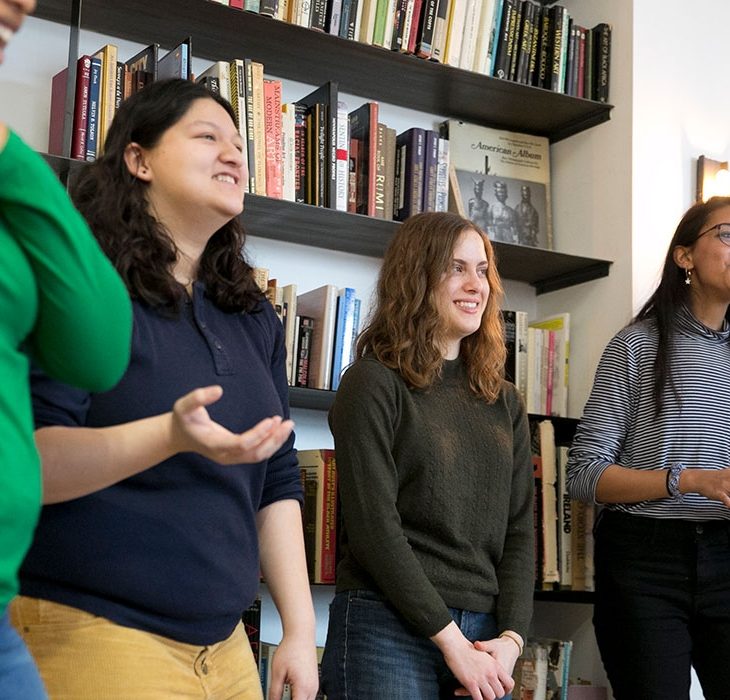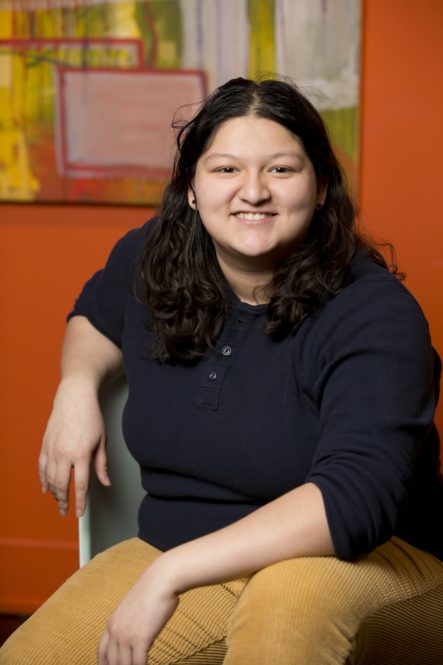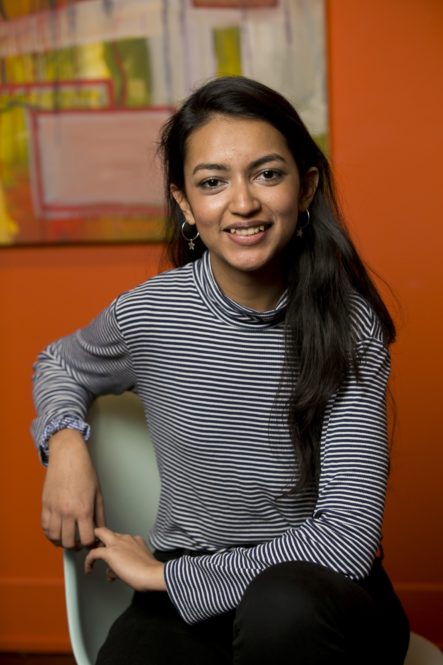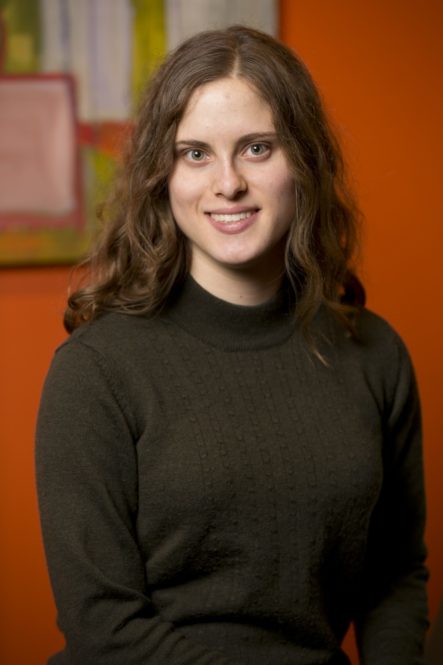Student Interfaith Leaders Persist in a Pandemic
March 31, 2020

Iyleah Hernandez lives a five-minute drive down the road from Dominican University in River Forest, Illinois, but it’s on-campus where she feels most at home.
As a sophomore double-majoring in math and computer science, she is actively involved in her community, working as an interfaith intern for the campus Ministry, a peer-tutor, and as a student assistant for the Undergraduate Research, Scholarship and Creative Investigations (URSCI) exposition. She spends her free time hanging out with friends in the hallways, organizing interfaith lunches and dialogue sessions, or doing homework in the library. It’s not just her physical home, but a spiritual one too. On-campus, she began embracing Catholicism, attends masses regularly and finds peace in praying silently in the campus chapel.
So, when news reached her about the campus shutting down amidst the Covid-19 pandemic, she grieved over losing her home.
“My campus is where I feel most myself, it’s my safe space,” says Iyleah. “I am scared knowing that I will not be returning anytime soon. There is so much anxiety and fear around not seeing some of my friends in-person again.”
Share
Related Articles
American Civic Life
Interfaith Inspiration
Coaching for Equity: Lessons for Coaches, Teachers and Leaders
Racial Equity
Immigrant Faith Communities On Rooting Out Anti-Black Racism

Dominican University is one of more than 85 colleges and universities across the nation that have closed its doors in the wake of the pandemic. Some schools have transitioned to online classes, while others have set strict deadlines for students to evacuate the residence halls, postponed exams and canceled graduation. Life, as they knew it, has ended abruptly.
For some students, campus closure has meant losing a sense of home. For others, it means displacement and loss of friendship and community.
Sohini Bhatia is an international student from Dar es Salaam, Tanzania, who moved to the U.S. last year to study architecture at Mount Holyoke College in South Hadley, Massachusetts. As a freshman, she is making new friends, finding her place in the community, and is becoming involved with the interfaith committee and international students organizing committee on campus. When the news about campus closure was released, she was in the dining hall with her friends. She remembers sitting in stunned silence, before breaking down in tears as she embraced the Dean of Spiritual and Religious Life, Annette M. McDermott. The following weekend, she flew back home.
“As a freshman, I was only beginning to find my place in the community and make friends,” says Sohini. “Now something feels missing, and I feel displaced. I’ve no idea when I’ll be physically in the same room with everyone the next time, but I have faith that it will happen soon.”

Given the uncertainty of the situation, students have been coping with their physical loss of community by bringing one another together online.
“Our interfaith committee would host tea-o-logy sessions where we’d connect to talk about our lives, faith and spirituality over tea and snacks,” says Sohini. “We are continuing to do that, but now, we are hanging out on Zoom in different time zones. We have to adapt and adjust to the times to stay connected with each other.”
Iyleah, on the other hand, is finding solidarity with the Catholic community by attending virtual Sunday masses hosted by the Holy Name Cathedral in downtown Chicago. She had been attending The Rite of Christian Initiation of Adults (RCIA) classes at St. Giles Catholic Parish to become a Catholic. The formal process involves three chief rituals, known as scrutinies, that are normally celebrated at mass on the third, fourth, and fifth Sundays of Lent. As masses have been canceled following the pandemic, Iyleah is working with the Church to find an alternative.
“The RCIA coordinator, Marci Madary, has been checking in with me regularly, and that’s helping me find peace,” says Iyleah. “Community is not made by the place, it’s the people. We are checking up on one another, we are hosting a ‘hope in hard times – what’s keeping you going?’ Zoom session to talk to one another, and that’s how I know we are all going to be okay together.”
Iyleah and Sohini are both IFYC coaches, and before she left the U.S., Sohini had a chance to say goodbye to another fellow coach, Alyssa Coffey.

“Since we are not a part of the same campus community, it meant a great deal to meet someone outside of it” says Sohini. “It’s a reminder that this pandemic isn’t personal, it’s something we are all struggling with around the world, and we are all in this together.”
Alyssa is a third-year Religion and American studies student at Hampshire College in Amherst, Massachusetts, where she’s a member of the Jewish Student Union (JSU) and a founding member of the Multifaith Council. Anticipating news about the campus closure, her first instinct was to reach out to her interfaith teammates. She baked sheets of cookies and sat for hours in the campus Cultural Center, texting her friends to grab a cookie, talk about their feelings around the crisis and bid goodbye.
“To me, interfaith work isn’t just about planning big events, but the small gestures we make to establish a community in times of need and how I carry myself in the world,” says Alyssa. “It’s a time of fear and anxiety, a scary interruption of our lives, and the decisions I make now can significantly impact someone’s feelings moving forward. We are all grieving now, not just for the deaths, but also for the loss of community, classes, semesters, graduation, and so many things that mean a lot to us. We can’t be together physically, but I’m finding ways to stay grounded virtually, through my faith, and want to help my friends do the same.”



